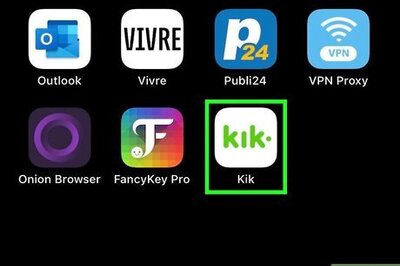
views
New Delhi: India is close to finalising a deal with the US that will allow it to continue buying crude oil from Iran without attracting any sanction after it agreed to cut imports and escrow payments, sources in know of the development said.
US sanctions on Iran's oil buyers snap back Monday, forcing importing countries to negotiate with the US for waivers by making cuts in purchases or risk getting blocked from the US financial system.
India, which is the second biggest purchaser of Iranian oil after China, is willing to restrict its monthly purchase to 1.25 million tonnes or 15 million tonnes in a year (300,000 barrels per day), down from 22.6 million tonnes (452,000 barrels per day) bought in 2017-18 financial year, sources said.
US appears to be satisfied with this reduction and is willing to give the waiver provided payments for oil purchases are parked in an escrow account which can be used for purchases from India, they said, adding the US does not want any money to reach Iran.
Sources, however, said no final decision has been made and an announcement is likely just before sanctions on Iran are reimposed on November 5.
India had continued to import crude oil from Iran despite the threat of sanctions. Two of its refiners - Indian Oil Corp (IOC) and Mangalore Refinery and Petrochemicals Ltd (MRPL) - have even made nominations to buy 1.25 million tonnes of oil from Iran in November.
India, the world's third-biggest oil consumer, meets more than 80 per cent of its oil needs through imports. Iran is its third-largest supplier after Iraq and Saudi Arabia and meets about 10 per cent of total needs.
US President Donald Trump in May withdrew from the 2015 nuclear accord with Iran, re-imposing economic sanctions against the Persian Gulf nation. Some sanctions took effect from August 6, while those affecting the oil and banking sectors will start from November 5.
Currently, India pays its third largest oil supplier in euros using European banking channels. These channels would get blocked from November.
During the first round of sanctions when EU joined the US in imposing financial restrictions, India initially used a Turkish bank to pay Iran for the oil it bought, but beginning February 2013 paid nearly half of the oil import bill in rupees while keeping the remainder pending till the opening of payment routes. It began clearing the dues in 2015 when the restrictions were eased.
Besides, New Delhi sought to get around the restrictions by supplying goods, including wheat, soybean meal and consumer products, to Iran in exchange for oil.
Sources said this time around the entire 100 per cent of Iranian oil import bill can be paid in rupees through the escrow account.
Iran was India's second biggest supplier of crude oil after Saudi Arabia till 2010-11 but Western sanctions over its suspected nuclear programme relegated it to the seventh spot in the subsequent years. In 2013-14 and 2014-15, India bought 11 million tonnes and 10.95 million tonnes respectively from it.
Sourcing from Iran increased to 12.7 million tonnes in 2015-16, giving it the sixth spot. In the following year, the Iranian supplies jumped to 27.2 million tonnes to catapult it to the third spot.
Iranian oil is a lucrative buy for refiners as the Persian Gulf nation provides 60 days of credit for purchases, terms not available from suppliers of substitute crudes -- Saudi Arabia, Kuwait, Iraq, Nigeria, and the US.
Besides blocking of banking channels from November, the absence of payment mechanism may pose a challenge to the transportation of the oil as Iranian crude is bought on a CIF basis and shipped on Iranian tankers.
Under Cost, Insurance and Freight (CIF) mode of shipping, the seller assumes the responsibility of transportation and insurance. The liability and costs associated with successful transit are paid by the seller until the goods are received by the buyer.
Also, insurance companies may not be willing to provide cover to refineries processing Iranian oil.


















Comments
0 comment